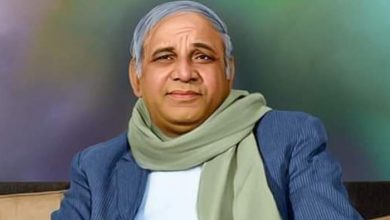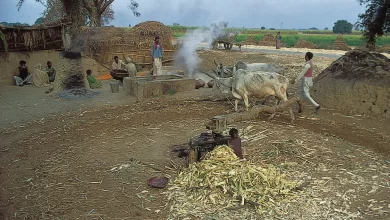Language Politics in Maharashtra: A Critical Lens on Targeted Violence
It challenges India’s plurality and constitutional ethos
Media Swaraj Desk
The resurgence of militant language politics in Maharashtra—led by partisan groups like the Maharashtra Navnirman Sena (MNS) and Shiv Sena (UBT)—is rooted in a “sons‑of‑soil” ideology aiming to assert Marathi identity. Public discourses and political rhetoric increasingly prioritize the Marathi primacy narrative, often leading to intolerance of non-Marathi speakers. Union and state governments, especially under CMs Devendra Fadnavis and PM Narendra Modi, have allowed such sentiments to grow by failing to pre‑empt or effectively act against hate‑driven violence.
Major Recent Incidents
• July 2025: Vigilante Violence by MNS
• Mira Road sweets‑shop assault: A non‑Marathi owner was beaten for refusing to speak Marathi—a video of the incident circulating widely .
• Powai security guard beaten: MNS cadres slapped a North Indian guard for not speaking Marathi .
• Shop vandalism at investor’s office: After MNS founder Raj Thackeray claimed non-Marathis “threaten Marathi identity,” his followers destroyed office property .
These incidents are being condemned by legal professionals, who have written to the DGP calling for action under the National Security Act .
• April 2025: Broad Regional Incidents
• Dombivali attack: Two women were assaulted for using the English phrase “excuse me” .
• Bank manager gherao in Lonavala & Pune: Incidents surfaced of MNS activists confronting non-Marathi professionals, forcing apologies or demanding Marathi use .
Historical Continuities of Attack on Migrants
Past incidents highlight a persistent pattern:
• 2008 anti‑North Indian violence: MNS/Shiv Sena orchestrated attacks on UP/Bihar migrants across Maharashtra, leading to deaths, property damage, and hundreds fleeing .
• 2008 Railway Examination violence: MNS activists disrupted exams and attacked North-Indian candidates, causing at least one death .
Political & Governance Response
Authority Response
Chief Minister Devendra Fadnavis Publicly condemned language‑based targeting: “no one should be targeted…won’t tolerate violence” . ^[However, implementation of legal actions remains visibly weak.
Union Minister Ramdas Athawale Condemned bullying of non‑Marathi speakers and affirmed it ran counter to Maharashtra’s inclusive ethos .
Legal Community Mumbai lawyers petitioned for NSA to be invoked against Raj Thackeray for incitement leading to violence .
Despite these statements, prosecutions are rare, and swift punitive measures are lacking. Infrastructure like Marathi coaching initiated by Shiv Sena (UBT) shows a calibration toward softer integration, contrasting sharply with the aggression of MNS tactics .
Critical Analysis: Governance Failure & Political Hypocrisy
Tolerated Hate Speech: Raj Thackeray’s public rallies continue to incite violence against non-Marathi speakers. Yet, enforcement remains largely symbolic.
Selective State Action:
While the rollback of Hindi inclusion and establishment of Marathi education committees were quick, criminal accountability was not — signaling a preference for symbolic politics over protecting constitutional rights.
Federal Inertia under Modi: Despite constitutional safeguards, the central government has remained mostly silent, allowing state-level intolerance to fester.
Social Fragmentation Risk: This unchecked aggression over language erodes India’s multicultural foundations, reinforcing exclusion and fear among non-Marathi residents.
Conclusion
Maharashtra stands at a crossroads: its celebrated pluralism is being eroded by vigilante language policing. Despite public denunciations by Fadnavis and Athawale, the lack of active policing—timely arrests, prosecutions, and enforcement of preventive tools like NSA—signals a dangerous reluctance to confront political violence.
Call to Action for Democratic Resilience:
Enforce criminal investigations into all language-based assaults.
Devolve preventive mechanisms: protection for vulnerable groups, linguistic sensitivity training for law enforcement.
Impose political accountability: silence and legal action against hate speech from political leaders.
Promote inclusive learning initiatives: fund language classes for migrants and Marathi-speakers seeking multi-lingual proficiency.
This is not merely a regional problem—it challenges India’s plurality and constitutional ethos. Without bold governance and moral clarity, Maharashtra risks undermining its social harmony in pursuit of narrow identity politics.





